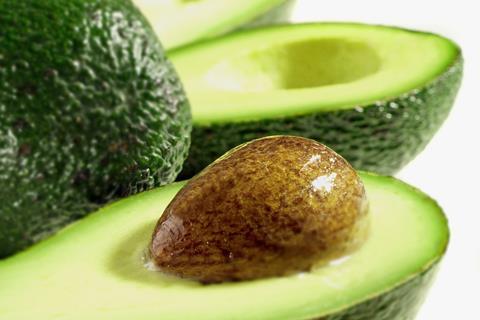Industry body also outlines plans to grow the category in Europe and Asia

New consumer research has identified key growth demographics that will help take avocado sales to the next level.
To mark Fruit Attraction, the World Avocado Organisation (WAO) teamed up with FMCG research consultant Nigel Parrott to analyse recent UK consumer and purchase studies to map target groups and everyday occasions that support sustainable avocado category growth.
The research indicates that the UK avocado market is still in its development phase. Currently, 47 per cent of households purchase avocados at least once a year, which WAO said presents a clear opportunity for growth, particularly by targeting parents aged 28 to 44 with school-aged children, as they tend to buy avocados in higher quantities compared to other consumer groups.
Unlike some other mature European markets, the growth of the avocado market in the UK relies less on increasing purchase frequency and more on attracting new buyers who, for various reasons, are not yet purchasing avocados.
Parents typically shop weekly for fruits and vegetables, sourcing avocados primarily from supermarket salad sections and street markets. They are likely to be influenced by simple, family-friendly meal ideas, the research suggests.
In terms of consumption occasions, British people tend to enjoy avocados most often at breakfast, lunch, and as afternoon snacks. Additionally, avocados play a significant role in baby food; according to WAO’s survey, 31 per cent of UK respondents use avocados for this purpose, with this figure rising to 42 per cent among parents of infants.
This makes young families a crucial driver for future growth in the avocado market.
In the UK, health, taste and simplicity are the top purchase drivers. Avocados are recognised as a source of ‘good fats’, minerals and lots of fibre and valued for their versatility across quick meals.
However, barriers remain, with regular buyers concerned about the environmental impact, the perceived high fat content, and how to determine ripeness. Meanwhile, non-buying parents in the 28–44 age group cite dislike, cost, and not knowing how to use avocados as the main reasons for staying away.
“Now that we understand the nuances within the UK when it comes to consumers, we can actively communicate with them, be it in local press, across their preferred social media platforms and directly in-store. Our aim is to educate and inspire trial across different but easy recipe variations, and to see this superfruit incorporated more frequently into their daily diet,” said Zac Bard, chairman of WAO.
Different approaches across Europe and the wider world
In each country, the target market differs, with a focus on 35-49 year olds in Spain, 25-44 year olds with kids in Germany, young people with no children in Italy, 50+ year olds in Portugal, and 25-34 year olds in France.
“A single message won’t unlock growth everywhere,” said Bard. “The key is investing in research. We have found local relevance and understand who the buyers are, and who consumes the avocado in the home, as we find it’s not always the same. Avocado fits local food culture; from breakfast habits in Spain to sweet uses in Asia. We at WAO aim to grow demand responsibly while we keep strengthening a resilient, sustainable supply.”
In China, meanwhile, a much smaller percentage of homes are buying avocados. There, WAO said the priority is wealthier women aged 25-44, with consumption skewing towards snacks and lunch, in both fresh and processed formats.
In India, consumption remains relatively low, with avocados being primarily consumed by wealthier and more educated households, who can currently afford them.
“Asia is the next frontier for avocados: the opportunity is to make the fruit familiar through local cuisine, trusted quality and clear health benefits,” said Bard. “Our goal is to introduce this superfood in ways that resonate with Asia’s diverse culinary culture and health-conscious consumers. With increasing awareness among younger generations who are already familiar with avocados, we believe this is the start of a long and promising journey.”



